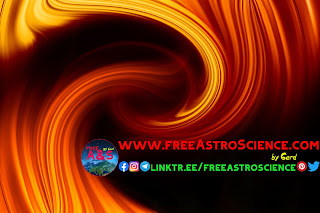Introduction to Energy
In its simplest form, energy is the ability to do work. Work refers to the movement of an object through space. Therefore, energy is what makes things move. Energy is everywhere, and it exists in different forms. It can be found in the sun, the wind, the ocean, and even in our bodies. Energy is what powers our homes, cars, and electronic devices. Without energy, life as we know it would be impossible.
What is Energy and Its Definition
Energy is a property of matter that describes the capacity of a system to perform work. The term "energy" comes from the Greek word "energeia," which means "activity" or "operation." Energy cannot be created or destroyed, but it can be converted from one form to another. In other words, energy is always conserved.
The History of the Concept of Energy
The concept of energy has been around for centuries. The ancient Greeks believed that everything in the universe was made up of four elements: earth, air, fire, and water. They believed that these elements had energy, which they called "pneuma." Later, in the 17th century, the English scientist Thomas Young introduced the idea of kinetic energy. He believed that energy was the ability to do work and that it was proportional to the velocity of an object.
Types of Energies and Their Meanings
There are different types of energy, and each type has its own unique properties. Some of the most common types of energy include mechanical energy, thermal energy, electrical energy, nuclear energy, and electromagnetic energy. Mechanical energy is the energy of motion, while thermal energy is the energy of heat. Electrical energy is the energy of moving electrons, while nuclear energy is the energy stored in the nucleus of an atom. Electromagnetic energy is the energy of light waves.
The Physics of Energy: Understanding E=mc2
The most famous equation in physics is E=mc2. This equation was first introduced by Albert Einstein in his theory of special relativity. It states that energy (E) is equal to mass (m) times the speed of light squared (c2). This equation shows that mass and energy are interchangeable. It means that a small amount of mass can be converted into a large amount of energy. This equation has revolutionized our understanding of the universe and has led to the development of nuclear power.
Energy Beyond Physics: Spiritual and Metaphysical Perspectives
Energy is not just a concept in physics. It is also a concept in spirituality and metaphysics. Many spiritual and metaphysical traditions believe that everything in the universe is made up of energy. They believe that energy is the source of all life and that it connects everything in the universe. Some traditions believe that there are different types of energy, such as positive and negative energy. Positive energy is associated with love, joy, and peace, while negative energy is associated with fear, anger, and hatred.
Energy in Philosophy
Energy has also played a significant role in philosophy. The philosopher Aristotle believed that everything in the universe was made up of four elements: earth, air, fire, and water. He believed that these elements had energy, which he called "entelechy." The philosopher Leibniz believed that everything in the universe was made up of monads, which were individual units of energy. He believed that these monads were interconnected and that they formed the basis of the universe.
Conclusion: Unpacking the Mysteries of Energy
Energy is a complex and multifaceted concept that has played a significant role in various fields, including physics, spirituality, metaphysics, and philosophy. It is the source of all life and the foundation of the universe. Understanding the physics of energy can help us harness its power to create new technologies and improve our lives. Understanding the spiritual and metaphysical aspects of energy can help us connect with the universe and find meaning in our lives. By unpacking the mysteries of energy, we can gain a deeper understanding of ourselves and the world around us.


Post a Comment